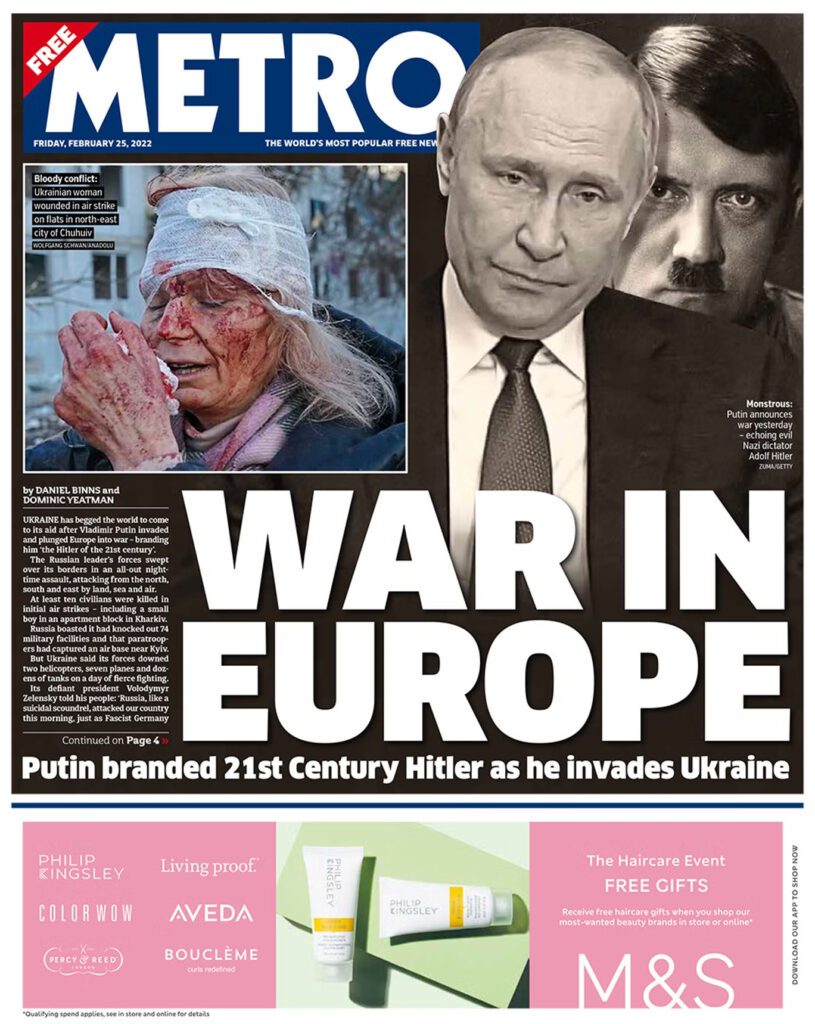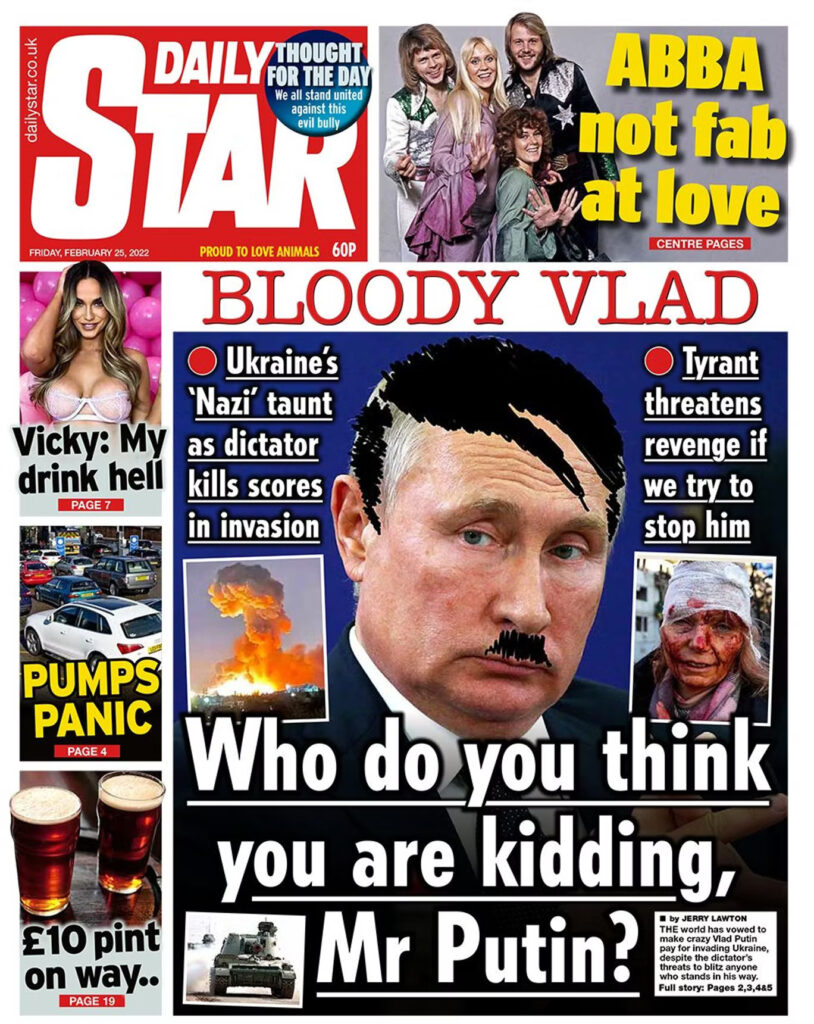
I don’t particularly like football. On occasion, I’ll watch the odd World Cup match, but other than that, my interest in the sport is virtually nill. This is good, because I’d find discussing it about as difficult as trying to discuss the inner workings of an engine with a local in rural France (I don’t speak French and I don’t understand cars).
Now, I admit, this is a particularly strange admission to start with when writing a blog post nominally about Gary Lineker – host of the football analysis and roundup show Match of the Day. It’s important for me, though, to manage expectations and make clear that this article is fully about the politics of the situation which, considering you’re reading this on my website and hopefully have at least a vague idea of what I do, is something I’m a lot more comfortable discussing.
This story has a lot of moving and interacting parts and involves intricacies of BBC contracts, the morality of immigration laws, rhetoric surrounding the so-called ‘culture war’, and debate about the legitimacy of evoking 1930s Germany in public discourse.
So, in order to properly dissect this, I’ve split this blog post into what I think the three major questions are relating to this story: the Gary Lineker question; the BBC question; and the Hitler Question.
The Lineker Question
Should the BBC have dismissed Gary Lineker?
Ever since the late 1990s, Gary Lineker has hosted Match of the Day. In the more than two decades he’s been in this role, he has frequently made his opinions on politics clear both on social media and in interviews. Ultimately, it appears that he’s a moderate. During the May/Corbyn years, he complained about the fact that he felt ‘politically homeless’ – going on to say that everything feels to far right or too far left.
As a moderate, Lineker supported the Remain campaign in 2016 and then went on to support the subsequent People’s Vote campaign.
He also has a history of trying to stand up for refugees attempting to enter the UK. When, in 2016, Tory MP David Davis suggested that asylum-seekers entering the UK should undergo dental checks to prove their age – Lineker spoke out against this, claiming that this proposal was “hideously racist and utterly heartless”.
The point is that Lineker has not exactly hidden his political views – he’s worn them on his sleeve. And that’s what he did this time: he tweeted, criticising the government’s new Illegal Migration Bill.
While, on occasion, some minor figures in the media and on the backbenches have tried to call him out for his tweets, the BBC has held firm and have, historically, never taken any significant action. This is probably because they know that if they did, they would be accused of gross hypocrisy.
As the UK’s state broadcaster, they have a long-standing commitment to impartiality. For their news broadcasters and journalists, this commitment is taken very seriously indeed. It is well understood that they are expected to remain publicly impartial in all situations – including on social media.
This makes a lot of sense, if it turned out that Huw Edwards was campaigning for Boris Johnson at the same time as he’s paid to hold him to account, questions would reasonably be asked about his ability to properly do his job. This, in turn, would undermine confidence in the organisation itself.
However, this same standard does not apply to other media personalities on the BBC. Ultimately, the BBC needs to try and convince the biggest media personalities in the country to work for them, and not their other commercial rivals. This is sometimes difficult as, given that as they cannot raise money from adverts, pay is frequently lower than similar jobs on other networks.
If actors, presenters, radio hosts etc were reliably sacked for making political comments on social media – the BBC wouldn’t really have many people left working for them. The BBC actually address this in their own guidelines.
“There are also others who are not journalists or involved in factual programming who nevertheless have an additional responsibility to the BBC because of their profile on the BBC. We expect these individuals to avoid taking sides on party political issues or political controversies and to take care when addressing public policy matters.”
BBC Guidelines
While they advise that high profile figures should be “careful” when addressing policy matters, the language suggests this is down to the judgement of the individual. Ultimately, the BBC doesn’t take political opinions being posted on social media that seriously – unless you’re a news personality.
That actually makes sense, too, because otherwise they’d have to fire a lot of the big names in the corporation – as the following list shows:
- Andrew Neil (host of various shows on the BBC between 2003 and 2020) voiced climate-sceptical when being interviewed by Philip Schofield
- Lord Sugar (host of The Apprentice) compared Jeremy Corbyn to Hitler, and urged people to vote for Boris Johnson
- Baroness Brady (judge on The Apprentice) is a Conservative peer in the House of Lords
- Richard Sharp (chairman of the BBC) gave huge donations to the Conservative Party and helped former Tory PM Boris Johnson receive a £800,000 loan
If you believe that all on-screen personalities on the BBC should be impartial – then you believe that none of these people should work (or should ever have worked) for the BBC.
And, for that reason, Lineker shouldn’t have been dismissed.
The BBC Question
What should the BBC do now?
Following the aforementioned Tweet by Gary Lineker, the BBC asked Lineker to apologise and tried to negotiate with him about his use of social media. This didn’t really go to plan and, on Friday night, Lineker was asked not to take part in Saturday’s episode of Match of the Day.
This was the first move in the BBC’s game of chicken with Lineker.
Let’s go back a few hours and look at why the BBC did this. As this controversy kicked off, the BBC assumed that they were the ones holding the cards, and that as his employer, they could set the terms on his social media use regarding politics. It appears that they made a fairly massive miscalculation, though. What they either appeared not to notice, or elected to ignore, is that in an interview outside his house on Friday morning, when asked if he was worried about losing his job, Lineker simply replied “no”.
Any power the BBC thought they had by virtue of being his employer simply evaporated. So, when they asked him to take down the tweet and apologise, Lineker stood his ground.
The BBC probably didn’t expect this response. They had two options here: back down or escalate. If they backed down, then they would obviously look weak. It would also appear that they are not that committed to the new BBC chairman’s plan to improve the corporation’s commitment to impartiality and that whenever they hit a small stumbling block on this, they would simply roll over.
If they escalated, though, then they probably expected that someone else would step up and take Lineker’s place on Match of the Day. While this isn’t ideal (especially given Lineker’s popularity on the program), they likely reasoned, it’s better than undermining their new push for impartiality.
Therefore, they escalated – they stood Lineker down from presenting duties until he agreed a new social media policy with the organsiation.
Things didn’t go as the BBC had planned though. Alan Shearer and Ian Wright announced that, in solidarity with Lineker, they also wouldn’t present Match of the Day. Alex Scott, of Football Focus announced that she also wouldn’t be hosting her show. Jason Mohammed of Final Score also stepped down from his presenting duties. As did Mark Chapman, Dion Dublin and Leon Osman of BBC Radio 5 Live Sport; Colin Murry from BBC Radio 5 Live Fighting Talk; and Jermain Defoe of Match of the Day 2.
Now that many of their big sport personalities have announced that they will not be presenting in solidarity with Lineker the BBC needs to try and chart a course that damages them as little as possible while getting the show back on the road in regards to sports programming as soon as possible.
The best way to do this is to u-turn.
Of course, this would be humiliating. It would mean that this whole saga was for nothing and that the BBC has lost this game of chicken with Lineker. The alternative, though, is far worse.
If the BBC holds firm, it is hard to see how sports programming will continue any time soon. The main presenters of the shows will likely stand by Lineker, and this story has gotten so big that anyone replacing them will be seen as a Judas.
Their decision to replace Lineker and co. will be seen as political, and as though they are okay with both the Illegal Migration Bill and the BBC’s actions against Lineker. Ultimately, their career would be forever tainted for crossing the Lineker picket-line.
The BBC, then, would be left making a deeply political appointment (despite the fact this whole saga was supposed to be about keeping politics out of BBC sports reporting) and losing some of their biggest, most popular presenters.
The longer they refuse to u-turn, the more presenters temporarily step down and the angrier football fans deprived of their favourite shows get.
The Hitler Question
Was Lineker right to evoke 1930s Germany in his Tweet?
This is one of the questions that isn’t really being discussed as much as it ought to. Ultimately, a debate can be had about whether BBC presenters can be political online – but even if the decision is that they can, there should be limits on this. As in any organisation, if you’re deeply offensive online, you cannot expect to keep your job.
It’s important to ask, then, whether Lineker’s tweet crossed this offense threshold.
There are two main parts to the tweet. The first is criticising the Illegal Migration Bill for being ‘cruel’.
It is hard for the BBC to realistically argue that this part is offensive. The organisation allowed Lineker and his co-presenters to broadcast criticism of Qatar instead of their opening ceremony at last year’s world cup. Clearly, the BBC has no issue with criticisms of perceived human rights abuses in other countries and, as such, they should have no issue with similar criticism of UK policies.
The second part is the allusion to 1930s Germany. Public attitudes towards this are complicated and sometimes confusing.
The Nazi regime committed some of the most horrific acts the world has ever seen, and it’s important that when a comparison is made that it is legitimate. Calling someone a ‘Nazi’ flippantly is looked down upon because it cheapens the comparison. It makes the comparison itself seem mild when, in reality, it should be one of the worst things imaginable to be compared to.
Similarly, if the papers constantly used Hitler as a cheap shot against politicians they didn’t like, then this comparison would become par for the course.
This is not to say, though, that when a certain action is similar to that of Hitler or 1930s/1940s Germany that a comparison cannot be made. When Vladimir Putin launched his illegal invasion of Ukraine back in February 2022, newspapers compared him to Hitler on their front pages. There was no public kickback to this – his actions were certainly similar to that of the Nazi dictator.


Now, the specifics of what Gary Lineker tweeted are very very important here. He said that the language used in the Illegal Migration Bill is “not dissimilar to that used by Germany in the 30s”.
In the 1930s, Hitler was laying the groundwork to his atrocities and the denigration of minorities was rife in his speeches, legislation, and in the media.
Clearly, Lineker thinks that the language used around the Illegal Migration Bill is derogatory to asylum-seekers in a similar way to the Nazi government of the 1930s. He is not comparing this policy to acts of the Holocaust (which took place in the 1940s). His specification of the 30s is important here.
Actually dissecting whether this is true is something I’d need far more education on history (specifically on Nazi migration policy in the 1930s) than I actually have – so I’ll leave that to people far more educated than myself.
The point I’m trying to make is that if it is believed that there is a legitimate comparison to Germany in the 1930s, then calling this out is not only okay – it is right.
Let’s not forget, this is something that sections of the media (and people in politics) have reported on, without criticism, before
Back in 2016, Nigel Farage’s UKIP actually posted a ‘Breaking Point’ poster in which a long line of (mostly non-white) migrants can be seen in a queue. Next to it are the words “Breaking point: the EU has failed us all”.
Twitter users were quick to point out that it resembled Nazi propaganda – and the poster was swiftly reported to the police for inciting racial hatred.
So, inherently, Lineker’s comparison is not grossly offensive unless the comparison is flippant and without merit.
Conclusion
The Gary Lineker tweet seems to have dominated news for the last couple of days and it currently doesn’t have an end in sight. Ultimately, the BBC has tried to enforce a new approach to social media which aims to improve their own impartiality. Their application of this new rule has been inconsistent, and they seem to have simply gone too far with it in relation to Gary Lineker.
Lineker should, ultimately, have been allowed to put his political views on social media. This has been a fairly well established rule for the BBC for years, and it has worked well.
What they have ended up doing, though, has been to put themselves in a position where they either back down and humiliate themselves or lose some of their biggest sports personalities. Ultimately, they should back down.
The main group against Lineker (those that argue that the 1930s Germany comparison was too far) are limited in their numbers.
It seems that the BBC has managed to unite the likes of Piers Morgan, Jeremy Clarkson, Nicola Sturgeon and Angela Rayner against them – which is quite the feat. People seem to be behind Lineker, and its becoming hard to see how the BBC could scrape a win out of this situation.
This article is completely separate to my work at TLDR News.
Follow me on twitter @tldrben